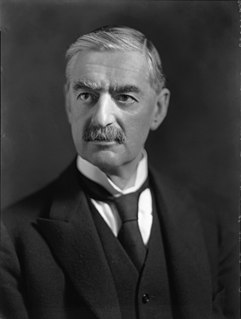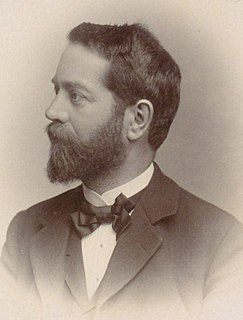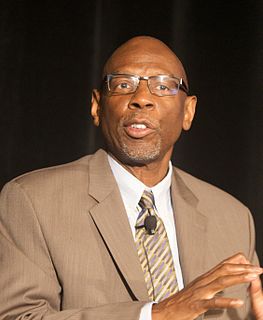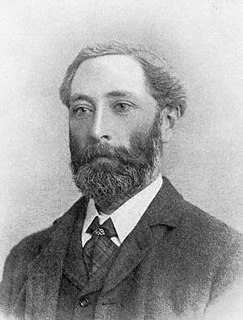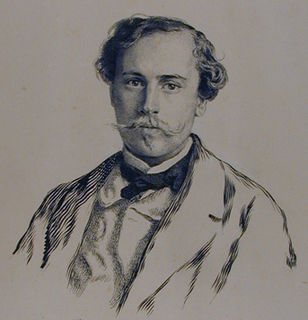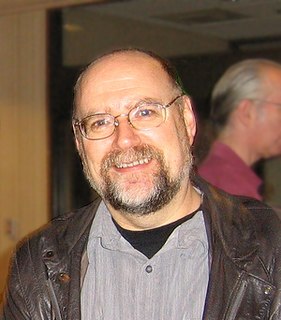A Quote by Heinrich Burkhardt
We do not live in a time when knowledge can be extended along a pathway smooth and free from obstacles, as at the time of the discovery of the infinitesimal calculus, and in a measure also when in the development of projective geometry obstacles were suddenly removed which, having hemmed progress for a long time, permitted a stream of investigators to pour in upon virgin soil. There is no longer any browsing along the beaten paths; and into the primeval forest only those may venture who are equipped with the sharpest tools.
Quote Topics
Along
Also
Any
Beaten
Beaten Path
Browsing
Calculus
Development
Discovery
Equipped
Extended
Forest
Free
Geometry
Having
Investigators
Knowledge
Live
Long
Long Time
Longer
May
Measure
Obstacles
Only
Paths
Pathway
Permitted
Pour
Primeval
Progress
Sharpest
Smooth
Soil
Stream
Suddenly
Those
Time
Tools
Venture
Were
Which
Related Quotes
Ever since I assumed my present office my main purpose has been to work for the pacification of Europe, for the removal of those suspicions and those animosities which have so long poisoned the air. The path which leads to appeasement is long and bristles with obstacles. The question of Czechoslovakia is the latest and perhaps the most dangerous. Now that we have got past it, I feel that it may be possible to make further progress along the road to sanity.
Foreshadowings of the principles and even of the language of [the infinitesimal] calculus can be found in the writings of Napier, Kepler, Cavalieri, Pascal, Fermat, Wallis, and Barrow. It was Newton's good luck to come at a time when everything was ripe for the discovery, and his ability enabled him to construct almost at once a complete calculus.
I have had extreme ups and downs. The biggest thing I learned after I broke my wrist is to never give up. Nothing in life will ever come easy. It depends on how you deal with those obstacles and how you overcome those obstacles. If you can overcome them, you're a stronger person. If you make mistakes along the way, as long as you never make that same mistake again, you're a successful person.
You know, development sometimes is viewed as a project in which you give people things and nothing much happens, which is perfectly valid, but if you just focus on that, then you'd also have to say that venture capital is pretty stupid, too. Its hit rate is pathetic. But occasionally, you get successes, you fund a Google or something, and suddenly venture capital is vaunted as the most amazing field of all time. Our hit rate in development is better than theirs, but we should strive to make it better.
We have a choice. We can live in the past and be miserable and unhappy, or we can pick ourselves up and move ahead in life. When we choose to focus forward, we can find the energy and ability to remove any obstacles that may appear to be hindering our smooth progression. If you take stock of yourself and find you may be spending time frequently reliving unhappy experiences of the past, make the decision to rid yourself of the ties that bind you to a former way of life.
A sign of the times: there are no longer any chairs in the bookshops along the embankments. [Noël] France was the last bookseller who provided chairs where you could sit down and chat and waste a little time between sales. Nowadays books are bought standing. A request for a book and the naming of the price: that is the sort of transaction to which the all-devouring activity of modern trade has reduced bookselling, which used to be a matter for dawdling, idling, and chatty, friendly browsing.
There are so many kinds of time. The time by which we measure our lives. Months and years. Or the big time, the time that raises mountains and makes stars. Or all the things that happen between one heartbeat and the next. Its hard to live in all those kinds of times. Easy to forget that you live in all of them.
We can tell much by what we have already willing discarded along the pathway of discipleship. It is the only pathway where littering is permissible, even encouraged. In the early stages, the debris left behind includes the grosser sins of commission. Later debris differs; things begin to be discarded which have caused the misuse or underuse of our time and talent.
But as Van casually directed the searchlight of backthought into that maze of the past where the mirror-lined narrow paths not only took different turns, but used different levels (as a mule-drawn cart passes under the arch of a viaduct along which a motor skims by), he found himself tackling, in still vague and idle fashion, the science that was to obsess his mature years - problems of space and time, space versus time, time-twisted space, space as time, time as space - and space breaking away from time, in the final tragic triumph of human cogitation: I am because I die.

